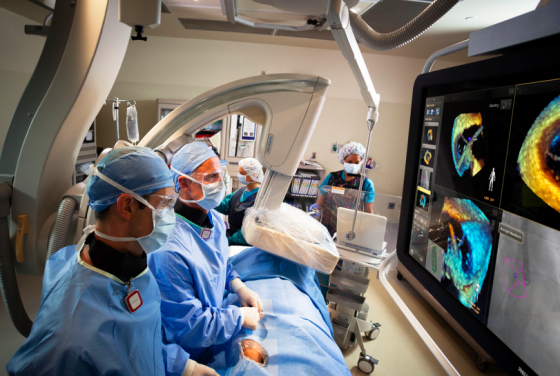Doctors to research MRI scan use in identifying prostate cancer
 The Radboud teaching hospital in Nijmegen has been given a €1.25m grant to research the use of MRI scans in identifying prostate cancer.
The Radboud teaching hospital in Nijmegen has been given a €1.25m grant to research the use of MRI scans in identifying prostate cancer.
Prostate cancer is the most common form of cancer in men but unlike in some countries, there is no national screening programme in the Netherlands. The disease is currently identified via a blood test which, if positive, is followed by a biopsy.
However, only 21% of men who undergo this painful procedure are actually found to have cancer, broadcaster Nos says.
An MRI scan can also be used to identify how aggressive a cancer is and to pinpoint its exact location. ‘If a tumour is spotted, the patient will still need a biopsy, but far fewer needles,’ chief researcher Jelle Barentsz told the Nos.
The research will involve testing 660 men at five different hospitals for the cancer using the MRI scan. Some patients already have scan-assisted biopsies but their number is too small to draw conclusions, researchers say.
Deaths
Some 10,000 men are identified with prostate cancer in the Netherlands every year and around 2,500 die from the disease. However, doctors say a better screening programme will prevent many of the deaths.
Earlier this year, European research led by Erasmus University in Rotterdam showed a two-yearly prostate cancer test for men aged 55 to 59 would save 300 lives a year.
The Netherlands recently began regular testing for bowel cancer. Women also undergo tests for breast and cervical cancer.
Thank you for donating to DutchNews.nl.
We could not provide the Dutch News service, and keep it free of charge, without the generous support of our readers. Your donations allow us to report on issues you tell us matter, and provide you with a summary of the most important Dutch news each day.
Make a donation